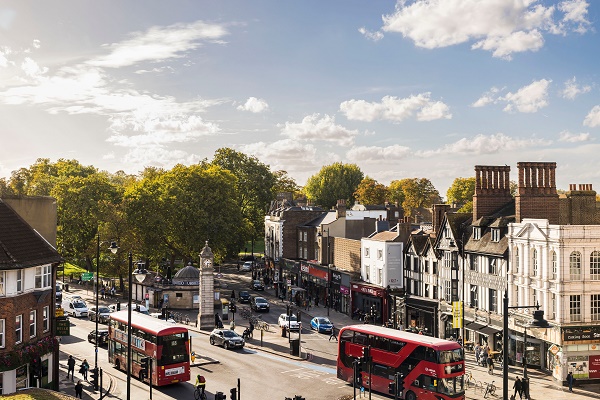Rightmove has reported that the average asking price of UK property rose by 0.5% in the month to 7 October, rising to £368,231. Despite the rise, it’s the smallest post-summer jump since the 2008 financial crisis. In light of this, David Hannah, Group Chairman of Cornerstone Tax – the UK’s leading property tax experts, discusses the current state of the UK’s property market.
Overall, Rightmove has reported that house prices dropped by 0.8% in the 12 months to early October as the lower activity fed through, while the number of agreed house sales fell by 17% compared with a year earlier. This comes as separate figures from Halifax showed the fastest fall in annual house prices in 14 years in September.
Hannah points out that the fall in market activity can be largely blamed on The Bank of England (BoE) raising interest rates 14 consecutive times until last month as it tried to tame inflation, and while they have paused at 5.52%, it is still the highest rate since the financial crisis of 2008.
As a result, the high level of inflation has affected mortgage interest costs, most notably for British landlords whose mortgages rose by 40% in the year to August, to £15bn a year, according to Hamptons analysis of data from lobby group UK Finance and the Bank of England.
The company said interest costs could hit £20bn a year within the next two years, as more and more landlords come to the end of their fixed-rate deals. Data from Cornerstone found that just 1-in-5 landlords say their investment has been profitable in 2023.
Chairman of Cornerstone Group International, David Hannah, said, “In the wake of Rightmove’s latest data, it’s evident that the UK’s property market is facing unprecedented challenges. The marginal increase in asking prices, the sharpest drop in annual house prices in 14 years, and a significant decline in house sales all underscore the current turbulence in the market.
“The primary culprit for this downturn lies in the relentless interest rate hikes by The Bank of England, which have driven mortgage costs to alarming heights. As landlords grapple with a 40% surge in mortgage expenses in just a year, the prospect of interest costs hitting £20 billion annually within the next two years is a grim reality.
“With only one in five landlords reporting profitability in 2023, it’s clear that the landscape for property investors has shifted dramatically. The repercussions of this financial upheaval extend far beyond the housing sector, impacting the broader economy and the financial stability of many individuals. It’s a sobering reminder of the delicate balance that exists in our economy and the need for prudent financial management in these challenging times.”






Leave a Comment